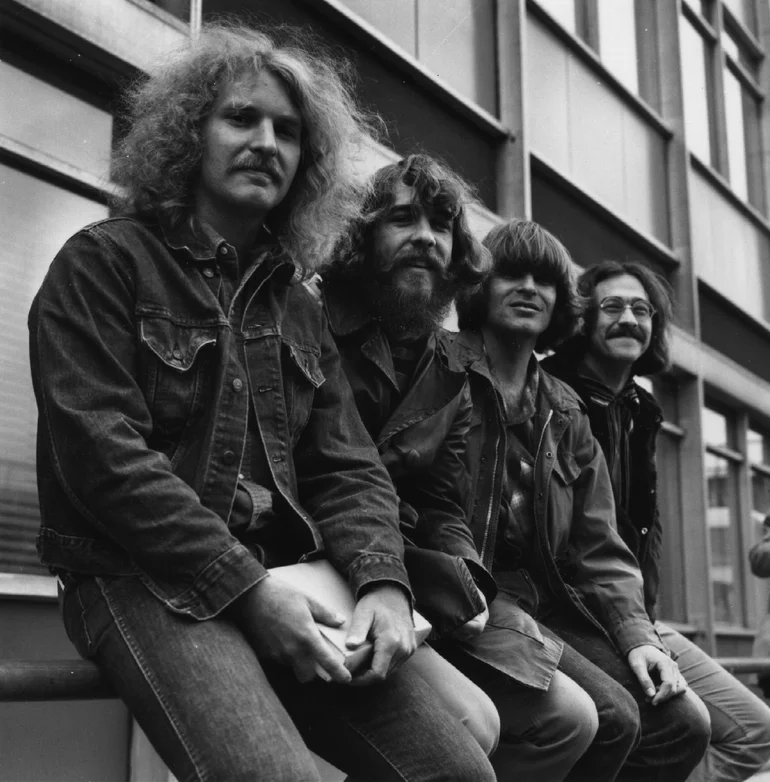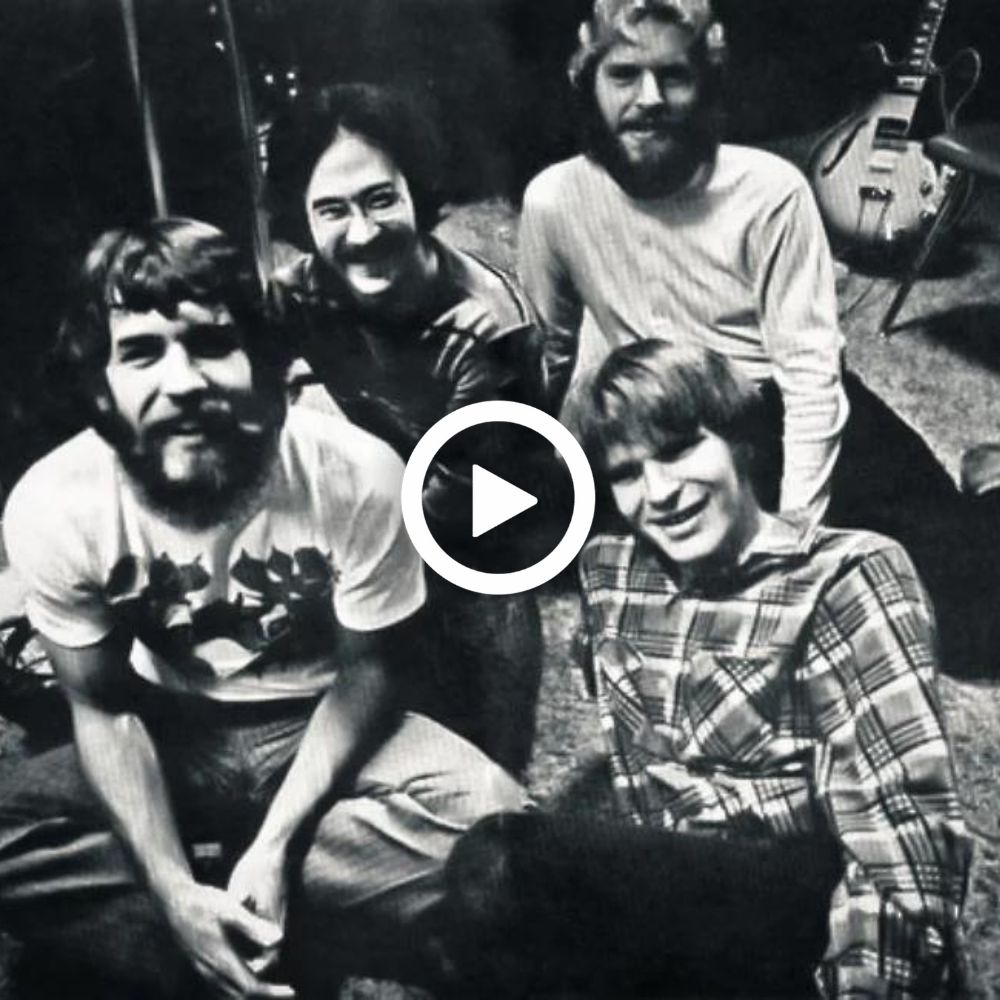ABOUT SONG
“Fortunate Son,” released by Creedence Clearwater Revival (CCR) in 1969, is a fierce and iconic protest song that remains one of the band’s most celebrated tracks. Emerging during the height of the Vietnam War, this powerful anthem captured the sentiments of a generation disillusioned by the inequalities in the draft system and the broader socio-political landscape. As a part of their album “Willy and the Poor Boys,” the song quickly became an emblem of the anti-war movement, with its hard-driving rhythm and vehement lyrics that critiqued the privileges of the wealthy and powerful who avoided the hardships of war.
The song’s impact was immediate and widespread, propelling the album to great heights, with “Fortunate Son” becoming a staple on U.S. radio and an enduring feature in CCR’s live performances. It resonated with a broad audience, cementing itself in the American cultural consciousness. The track not only charted successfully in the United States but also received critical acclaim for its directness and relevance, contributing significantly to the band’s success during this era. “Fortunate Son” has been covered by numerous artists across various genres, underlining its influence and the universal appeal of its message.
Over the years, “Fortunate Son” has achieved numerous accolades, including being added to the Grammy Hall of Fame, which recognizes recordings of lasting qualitative or historical significance. Its enduring relevance is further highlighted by its frequent use in films, television shows, and commercials that seek to evoke the era of the 1960s and 1970s, particularly themes surrounding the Vietnam War and social justice. The song’s lasting impact is a testament to its sharp critique of societal and political issues, which continues to resonate with new generations.
MEANING BEHIND
“Fortunate Son” is a blistering commentary on social inequality, particularly the disparity between those who wield power and those who are subject to it. The song’s lyrics sharply criticize the practice of selective conscription, which often saw the working-class and minorities disproportionately sent to fight in Vietnam, while the wealthy and influential could avoid service. This critique is encapsulated in the chorus, where John Fogerty bellows, “It ain’t me, it ain’t me, I ain’t no senator’s son!” This line underscores the anger and frustration felt by those who perceived the war effort as skewed against them.
The song also delves into the broader theme of privilege in American society, highlighting how influential families shelter their own from the dangers faced by the less fortunate. Through its visceral and straightforward lyrics, “Fortunate Son” expresses a widespread disillusionment with the American Dream, which seemed inaccessible to the average citizen. Fogerty’s raw vocal delivery enhances the song’s emotional weight, conveying a sense of urgency and calling listeners to reflect on the social injustices of their time.

Moreover, “Fortunate Son” reflects the zeitgeist of the late 1960s, a period marked by intense political activism and significant cultural shifts. The song became an anthem for the counterculture movement, which sought to upend traditional values and demand greater equality and peace. In doing so, it connected deeply with young people across the country, who saw CCR not just as musicians, but as spokespeople for a generation fighting for change.
Musically, “Fortunate Son” exemplifies CCR’s ability to fuse rock and roll with other elements like blues and folk, creating a sound that was both unique and deeply American. The song’s structure is simple yet powerful, with driving guitars and a relentless beat that mirrors the protest chants of the era. This musical approach made the complex messages in the lyrics accessible to a mass audience, ensuring that its call to action was heard loud and clear.
Today, “Fortunate Son” continues to be relevant, often cited in discussions about social and political issues. Its inclusion in educational settings, as well as its use in media, highlights its role not only as a piece of musical art but as a historical document. The song is a reminder of the power of music as a form of protest and expression, illustrating how art can influence perceptions and inspire societal change. As such, “Fortunate Son” stands as a crucial part of Creedence Clearwater Revival’s legacy and an enduring symbol of resistance against injustice.
